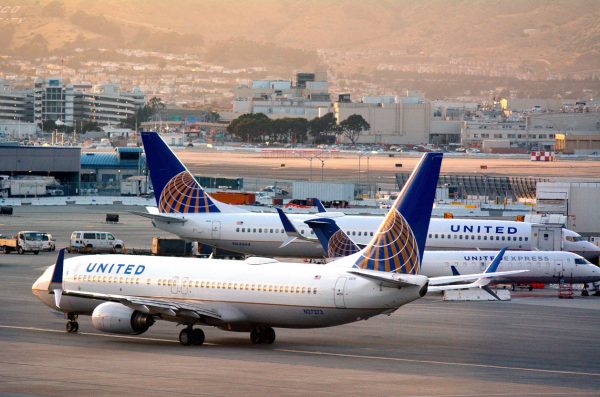Are airlines new no-change-fee policy’s as good as they claim?
Signing up for credit cards through partner links earns us a commission. Terms apply to the offers listed on this page. Here’s our full advertising policy: How we make money.
As much as I like to meticulously plan my family’s vacations, plans change and delays happen. In an effort to keep some travel hopes alive during the pandemic, I’ve been frequently changing and delaying trips as opposed to cancelling them altogether.
Before COVID-19 hit, changing or rescheduling your flight would cost a pretty penny with most U.S. airlines. The airlines introduced change fee waivers as travel came to a halt, but many have recently announced they will eliminate change fees for good. This is great news for travelers, particularly those with frequently-changing plans. However, upon second glance, there’s much more that meets the eyes with these new policies.

Airlines have (mostly) gotten rid of change fees
United shook up the airline industry when it proudly claimed to be the first legacy airline to eliminate change fees. Alaska, American and Delta quickly followed suit, announcing that change fees for most domestic flights (and some international) will never return, even in a post-pandemic era. Southwest has long been an industry leader in this regard, never charging a fee or penalty to change any flight.
Alaska’s and Southwest’s policies may be the most generous, with change fees being waived on flights to all destinations served by the carriers. For the big three legacy airlines, the elimination of change fees only applies to specific routes:
- American: Domestic flights and international flights to Canada, Mexico, the Caribbean, Puerto Rico, and the US Virgin Islands
- Delta: Domestic flights, including flights to Puerto Rico and the US Virgin Islands
- United: Domestic flights, including flights to Puerto Rico and the US Virgin Islands
Each carrier’s policy varies slightly but offers travelers the ability to change their flight to a different flight of equal or lower value without penalty. American will offer travelers the ability to “store” the credit from any flight change, unlike United. This means that if you purchase a $500 American flight and change to a $300 flight, you can “store” the $200 difference to be used on a future flight. Delta and Alaska have not stated what they will do when switching to a cheaper flight.
[ Read: The best travel credit cards ]
Finally, United introduced free standby for travelers — a significant improvement over the current $75 fee. This could mean big savings for a couple or family trying to hop on an earlier flight home. American, United and Alaska will no longer levy change fees on award tickets, while Delta is still deciding how to treat award travel changes come 2021.
It’s important to note that most of these new no-change fee policies go into effect next year — airlines currently have more comprehensive change fee waivers in place through the end of 2020. Check with your airline for specific details if you need to change your flight in the next few months.
Are airlines no-change-fee policy’s really as good as they sound?
Unfortunately, these policies may not be all sunshine and roses. Certain restrictions remain and many flight changes still require additional payment.
“When news articles heralded ‘the end of change fees’ it gave average travelers the impression that change fees have in fact ended,” said Scott Keyes, founder and chief flight expert of Scotts Cheap Flights. “They have not.”
Travelers will still need to read the fine print, plan carefully, and ensure they follow the rules of each airline in order to safely avoid change fees. Here are a few things to consider before relying on free changes for your next flight.
Only certain routes avoid fees
The first key limitation is that change fees will only be eliminated from domestic flights while most international flights will continue to carry a (hefty) change fee. Although we appreciate the sentiment for making domestic flight changes, international itineraries are typically the most difficult to change and often carry the biggest financial penalties.
The cheapest tickets, basic economy, are excluded from these policies
The absolute cheapest flights offered by airlines are typically basic economy fares, which Keyes and many other travelers primarily book.
“I’m a fan of cheap flights, and as a fan of cheap flights, I typically book the cheapest flight,” said Keyes. “So until they expand change fee elimination to include basic economy tickets, it’ll continue to be mostly business as usual for me personally.”
So if you want to avoid change fees, you’ll have to buy up to a standard economy fare. It’s possible your net savings after attempting to evade a change fee may be wiped out by the difference in price between a standard economy and basic economy ticket.
Free changes don’t mean free cancellations
Last but certainly not least, free changes only allow travelers to “save” their flight credits to be used on another flight on a future date. This means that if a trip is cancelled or postponed indefinitely, travelers can’t get real money back into their pockets without paying a significant cancellation fee (as is the case today).
If you can cancel your flight you’ll be stuck with a flight credit with an expiration date.
Bottom line
The widespread elimination of change fees from the largest US carriers means more flexibility and less out-of-pocket fees for travelers — which is still a huge win. But before blindly booking your next flight expecting full financial flexibility, be sure to consider the remaining restrictions on itineraries that include international flights or basic economy fares.
Keyes recommends choosing your next flight wisely while still trying to book the most cost-effective flight. These changes may even increase the value proposition of standard economy fares (as opposed to basic economy) due to the ability to make changes without penalty.
What are your thoughts on these complicated new rules? Let us know in the comments — and subscribe to our newsletter for more posts like this delivered to your inbox once per day.
Featured image by iStock.
Editorial Note: We're the Million Mile Secrets team. And we're proud of our content, opinions and analysis, and of our reader's comments. These haven’t been reviewed, approved or endorsed by any of the airlines, hotels, or credit card issuers which we often write about. And that’s just how we like it! :)






Join the Discussion!